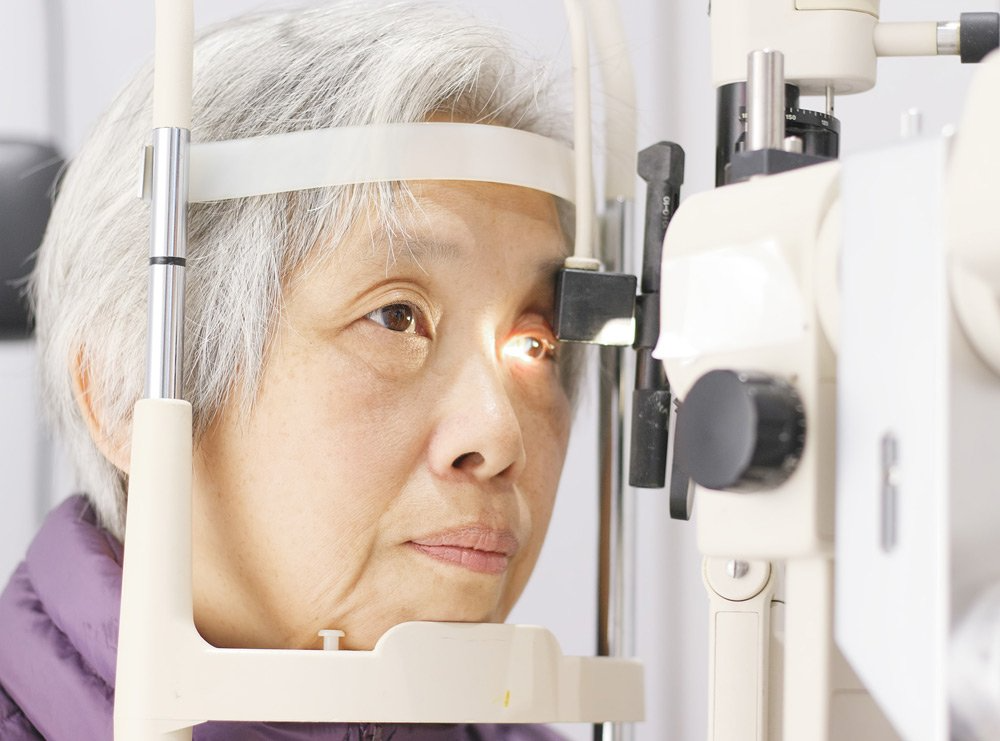The Essential Guide to Maintaining Healthy Vision
Sub Title

“Why should I see an ophthalmologist? My vision is just fine.”
A belief that many people hold is that if they aren’t experiencing any vision-related problems, why would they visit an ophthalmologist. After all, you can’t fix what isn’t broken, right? The truth is, while your vision may appear to be great right now, most vision-related concerns show early warning signs that can only be detected by a skilled ophthalmologist during a comprehensive eye examination.
Healthy vision is an easy thing to take for granted and often is the case that by the time vision problems begin to affect your daily life, a serious visual condition may have already taken hold. Identifying issues early is fundamental to long-term visual health as most vision loss is irreversible.
Luckily, there is much you can do to maintain and support your visual health both now and in the future. Read on to learn more!
Schedule Routine Comprehensive Eye Examinations
Due to many eye diseases not exhibiting symptoms until after the damage has been done, a comprehensive eye exam is hands down the most proactive way to detect and prevent vision problems from advancing and causing permanent vision loss.
Eye examinations are more than simple vision screenings designed to determine your visual acuity – when performed by a skilled and licensed ophthalmologist they can facilitate the detection of much more serious ailments including cataracts, glaucoma, and retinal diseases. Moreover, other bodily conditions such as diabetes and cardiovascular problems can show early warning signs through your eyes.
What Can I Expect from a Comprehensive Eye Examination?
A thorough eye examination will consist of a series of tests designed to establish and determine your overall ocular health, any existing conditions, and if needed; which treatment options may best serve your specific needs.
A comprehensive eye examination will include the evaluation and consultation of:
- Family & Medical History – If vision problems run in your family, they can be good indicators of many potential conditions and help determine issues early. Information regarding your general health, any medications you may be on, and the demands of your home/work life are also important for an accurate diagnosis.
- Visual Acuity Test – A measurement of sight to establish how your vision compares to what is considered “normal” vision at varying distances.
- Refraction Vision Test – Utilizing refractive techniques, this test will assist in determining your potential need for contact lenses or eyeglasses as well as the correct prescription needed.
- Eye Positioning & Movement Test – This assessment will determine muscle functionality and eye coordination, evaluating how well your eyes operate both individually and jointly.
- Size & Reactiveness of Pupils – Examining the quality and speed of your pupillary response is important for the diagnosis of many conditions including acute glaucoma, uveitis, optic nerve damage, and high blood pressure.
- Ocular Health & Functionality – This test helps to determine your field of vision and analyses the operation of the retina, optic nerve, and optic pathways.
Following testing, patients can expect a complete and understandable explanation of any discoveries, what they indicate, and what treatment options may be available along with professional recommendations.
How Often Do I Need a Comprehensive Eye Examination?
When it comes to determining when you should be getting an eye exam, age matters. The recommendation for routine examinations is as follows:
- Adults Under 40 – Schedule an eye examination every 2-3 years.
- Adults 40-60 – Schedule an eye examination every 1-2 years.
- Adults Over 60 – Schedule annual eye exams
As we age, we become more and more susceptible to various eye diseases including glaucoma, macular degeneration, and cataracts. If you have a family history of vision-related issues, consult with your ophthalmologist regarding how often you should have your eyes examined.
Supporting Your Vision Between Eye Examinations
Comprehensive eye examinations are the best way to identify and treat eye-related conditions but there is much you can do on your own to support and maintain healthy vision. Proactive lifestyle choices and activities can benefit your visual health all year round.
- Maintain a Healthy Diet – Studies show that a diet rich with fruits and vegetables play an important role in supporting healthy eye tissues. Foods that contain omega-3 fatty acids, vitamins C & E, and antioxidants promote good ocular health.
- Exercise Often – Regular exercise improves circulatory and cardiovascular functionality which in turn increases oxygen levels in our bodies and reduces the risk of conditions such as macular degeneration.
- Wear Eye Protection – Keep your eyes safe by wearing UV blocking sunglasses when outside and using safety goggles to prevent injury from athletic or work-related activities.
- Refrain from Smoking – Smoking is linked to the progression of cataracts, macular degeneration, and optic nerve damage.
- Minimize Screen Time – Dry eye and fatigue can be caused by prolonged use of computer screens, television, and smartphones. If you spend a lot of time in front of a screen, either for work or play, it is recommended to practice what is called the 20-20-20 rule to prevent extensive eye strain. This means for every 20 minutes, focus on something 20 feet away, for 20 seconds.
- Protect from Infection – This one is simple but worth reminding, thoroughly wash hands before handling contact lenses or making contact with your eyes for any reason.
Advanced Vision Care at Dougherty Laser Vision
DLV Vision is your experienced and trusted eye care provider for advanced ophthalmological services. We combine technology, safety, and decades of expertise to produce a high level of patient care that will allow you to make a confident and informed decision. If you are interested in learning more about the many benefits of a comprehensive eye examination or any of our advanced services, please call or contact us online today! Your best possible vision begins with you.

